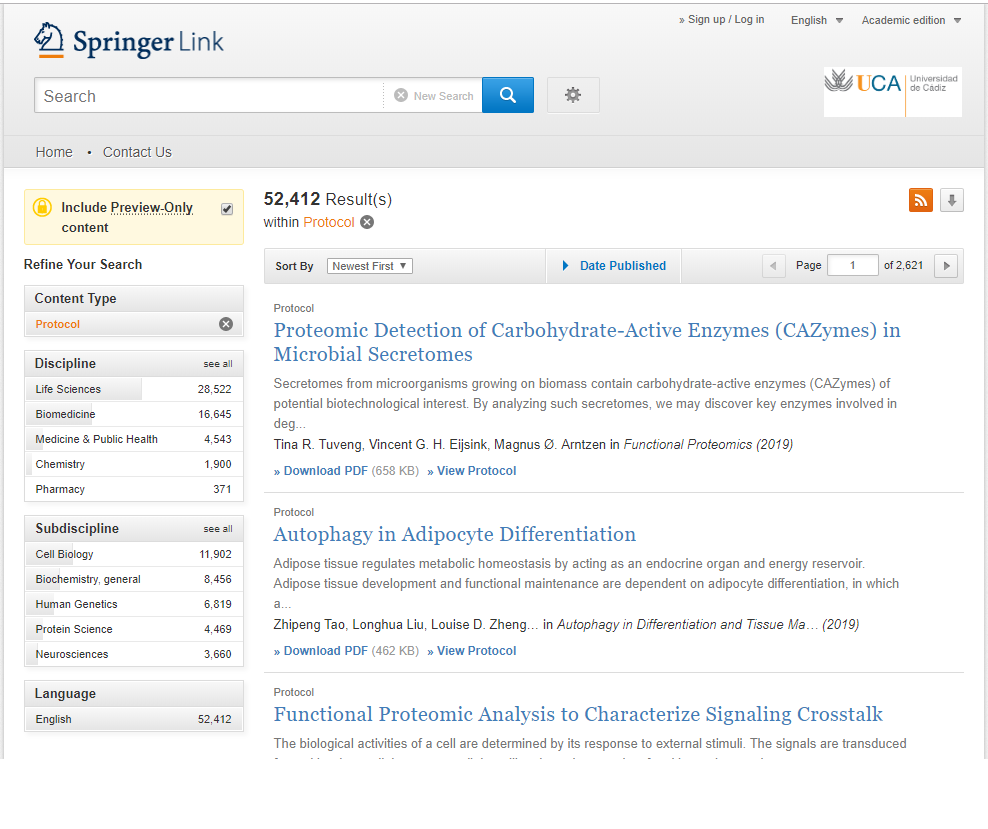Desde el 1 de octubre hasta el 30 de noviembre, la Universidad de Cádiz dispone de acceso a Springer Protocols.
SpringerProtocols es un recurso imprescindible para la investigación en laboratorio. Es la mayor base de datos de protocolos reproducibles (+50.000) en biomedicina y ciencias de la vida, de forma que los usuarios pueden encontrar el protocolo más adecuado para su investigación. Ofrece acceso a más de 30 años de contenidos comprobados paso a paso para su inmediato uso. Esta publicación empezó editando una serie de libros “Methods in Molecular Biology”, del editor John M. Walker, creador del concepto “protocol”.
Springer Protocols forma parte de la plataforma Springer Link por lo que permite búsquedas cruzadas con el contenido suscrito por la Universidad de Cádiz (revistas, libros …).



